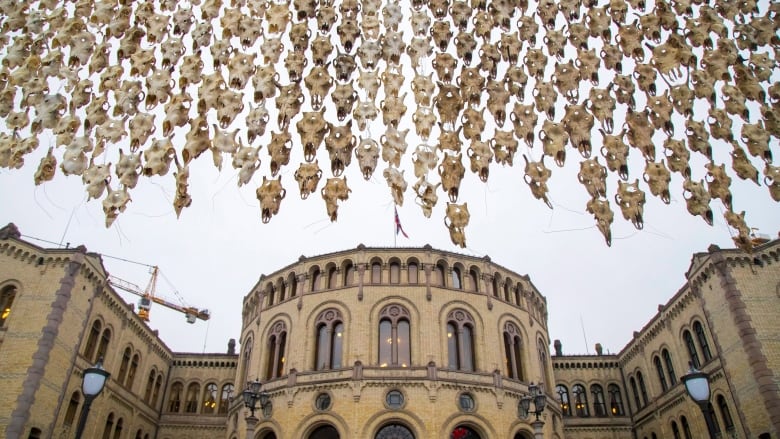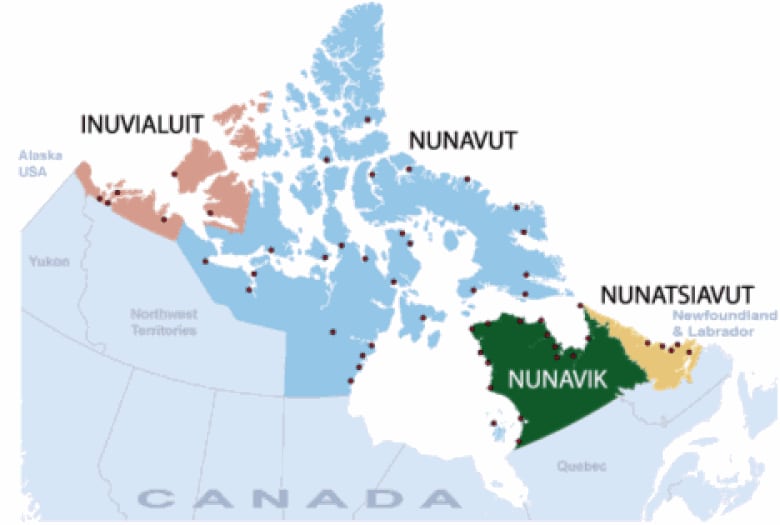Inuit, Sami leading the way in Indigenous self-determination, study says

Indigenous peoples across the globe have been pursuing greater control over their lands and lives and new research says two circumpolar Indigenous groups are trailblazers when it comes to that control and self-determination.
The study published by the Institute for Research on Public Policy compares how the Sami in Norway and Inuit in northern Canada have taken different approaches when it comes to self-determination over the past four decades.
“The contrast between the two is interesting,” said Gary Wilson, a professor of political science at the University of Northern British Columbia and one of the study’s authors.
Wilson says Inuit have focused on self-rule — autonomy over decisions at the local level — by negotiating land claim agreements and establishing regional governments. And he noted how Inuit are divided among four regions in Canada — Nunavut, the Inuvialuit Settlement Region in the Northwest Territories, Nunavik in northern Quebec and Nunatsiavut in northern Labrador — which have institutions of varying levels of independence.
Meanwhile, the Sami have focused on shared rule or integration within broader non-Indigenous governments. They elected a national Indigenous parliament, the Samediggi, in 1989, which represents Sami across Norway and provides limited authority over language, culture and education.

According to Wilson, the different self-determination approaches taken by the Sami and Inuit are connected to the national political systems in their respective countries. Canada has a federal system of government, where power is divided between federal and provincial/territorial governments, while Norway has a unitary system of government, where power is centralized at the national level.
Neither self nor shared rule is a more advantageous approach, Wilson says, but a balance of both is needed for successful, long-term self-determination.
The right of Indigenous peoples to self-determination is included in the United Nations Declaration on the Rights of Indigenous People, which Canada officially removed its objector status to in May 2016.
“Putting powers in the hands of Indigenous peoples to make decisions over their own lives is an important step forward in terms of dealing with the history of colonialism,” said Wilson.
“You can’t just have self-ruling regions without any connections or few connections to other levels of government that affect them,” he said. “The same goes for shared rule. It’s one thing to have these kind of national shared rule institutions but if you can’t exercise autonomy at the local and regional level it doesn’t work very well.”

Still work to be done
Looking forward, Wilson said there is work to be done in both countries toward striking a necessary balance. He says the Sami should work toward greater regional self-rule while Inuit should focus on representation at the federal and territorial/provincial government levels.
“It’s kind of interesting to think about … what would that look like in Canada if we decided to create an Indigenous parliament, for example, that might represent more than just Inuit, it might represent other Indigenous peoples too, giving them a kind of a direct voice at the federal level.”
Some progress has been made in this area, Wilson noted, with the creation of the Inuit Crown Partnership Committee in February 2017. It aims to bring together Inuit leaders and senior federal officials to discuss issues impacting Inuit. Wilson said there’s also a need to include provincial and territorial officials in these discussions to ensure that programs for Inuit are delivered effectively.
“We need kind of an almost like trilateral body that will discuss the issues that are pertinent in Inuit regions.”
Related stories from around the North:
Canada: Northern Canada: Denes and Métis sign self-governance agreement in principle for Sahtu region, CBC News
Finland: UN Committee blasts Finland over electorate ruling for Sami Parliament, Yle News
Norway: Injustices against Sámi, Kven peoples to be examined by commission in Norway, The Independent Barents Observer
Sweden: Report sheds light on Swedish minority’s historic mistreatment, Radio Sweden
United States: Inuit leaders to advance Indigenous human rights, Radio Canada International



